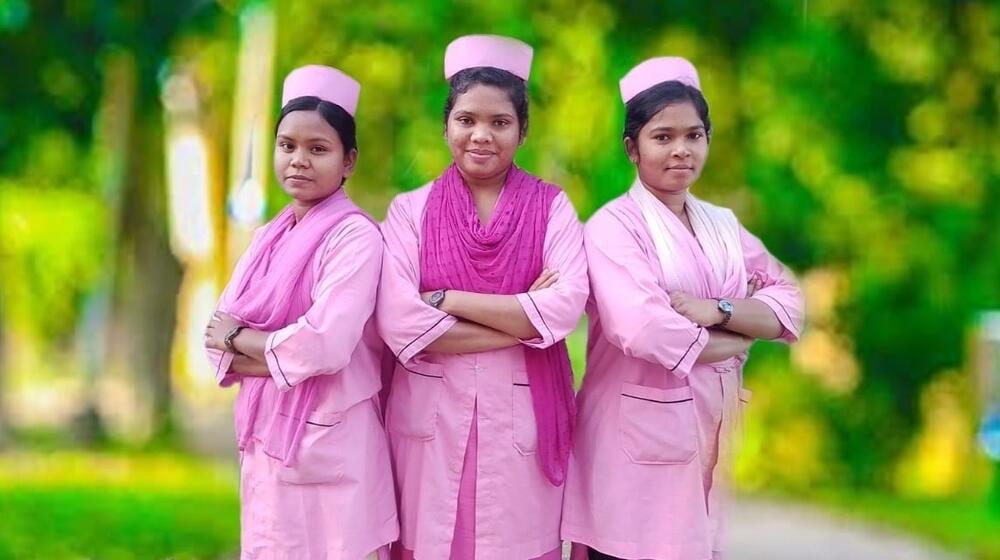“During my childhood I did not see any trained birth attendants in my community. Local dai (traditional birth attendants) used to perform the deliveries by following a variety of traditional methods. I remember how the women were always taken from their homes to the barn, where they did the delivery on dry grass. No relatives were ever allowed to witness the delivery!”
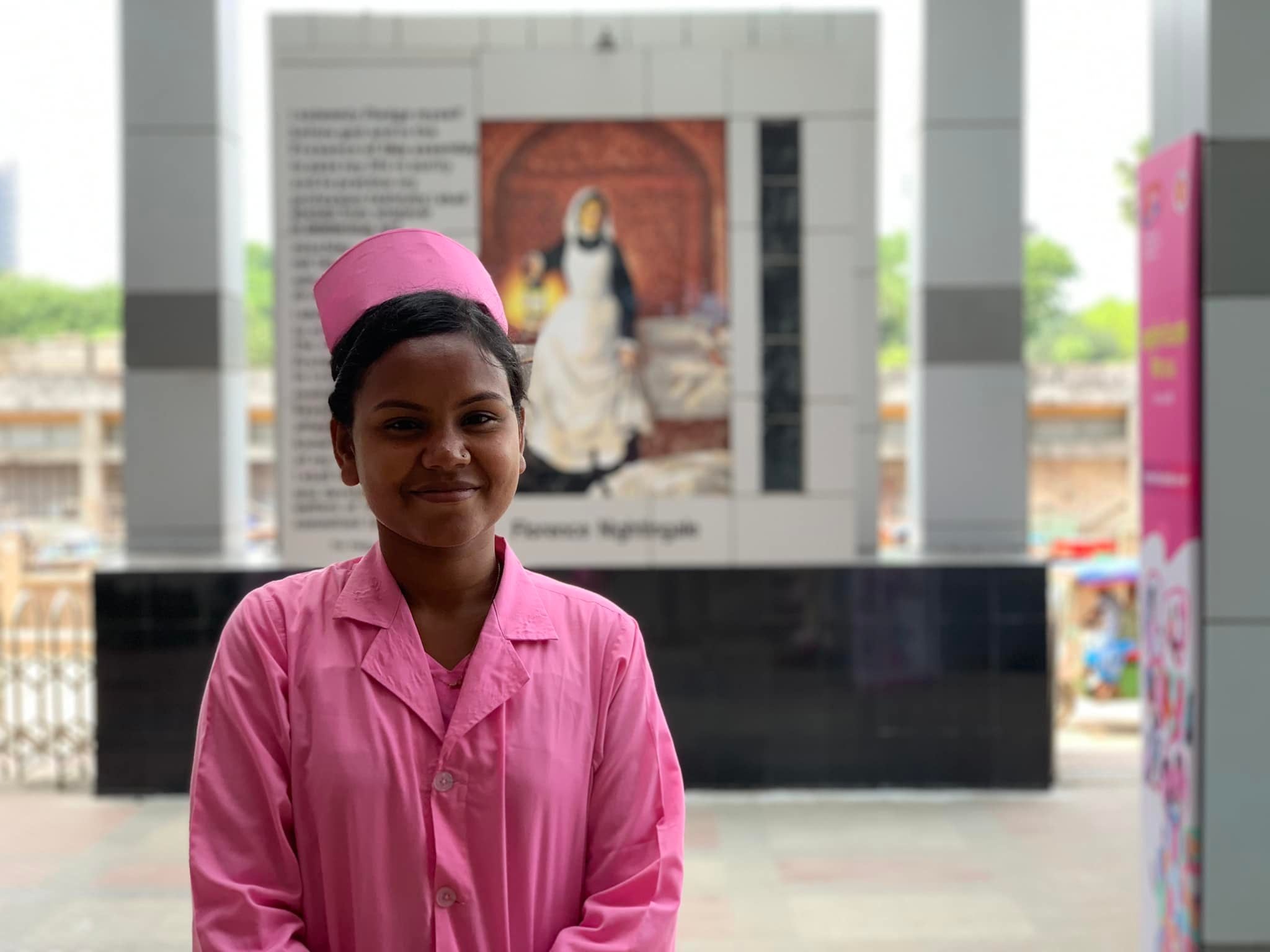
When Minoti Murmu was growing up deliveries were always performed in accordance with traditional beliefs of the Santal community.
This is how midwife Minoti Murmu recalls how deliveries used to be performed when she was growing up in her small village in Gobindaganj Upazila, Gaibandha District. Minoti comes from Bangladesh’s Santal community, which is one of the country’s many ethnic groups.
As a result of poor access to maternal health services and information in the past, many traditional beliefs regarding pregnancy and motherhood have remained prevalent among the Santal community. “For example, Santals have traditionally believed that the blood that comes out from a mother’s uterus during the delivery is unholy. As a result, the mother and newborn have been expected to stay separated from the rest of the family for seven days after the delivery,” Minoti explains.
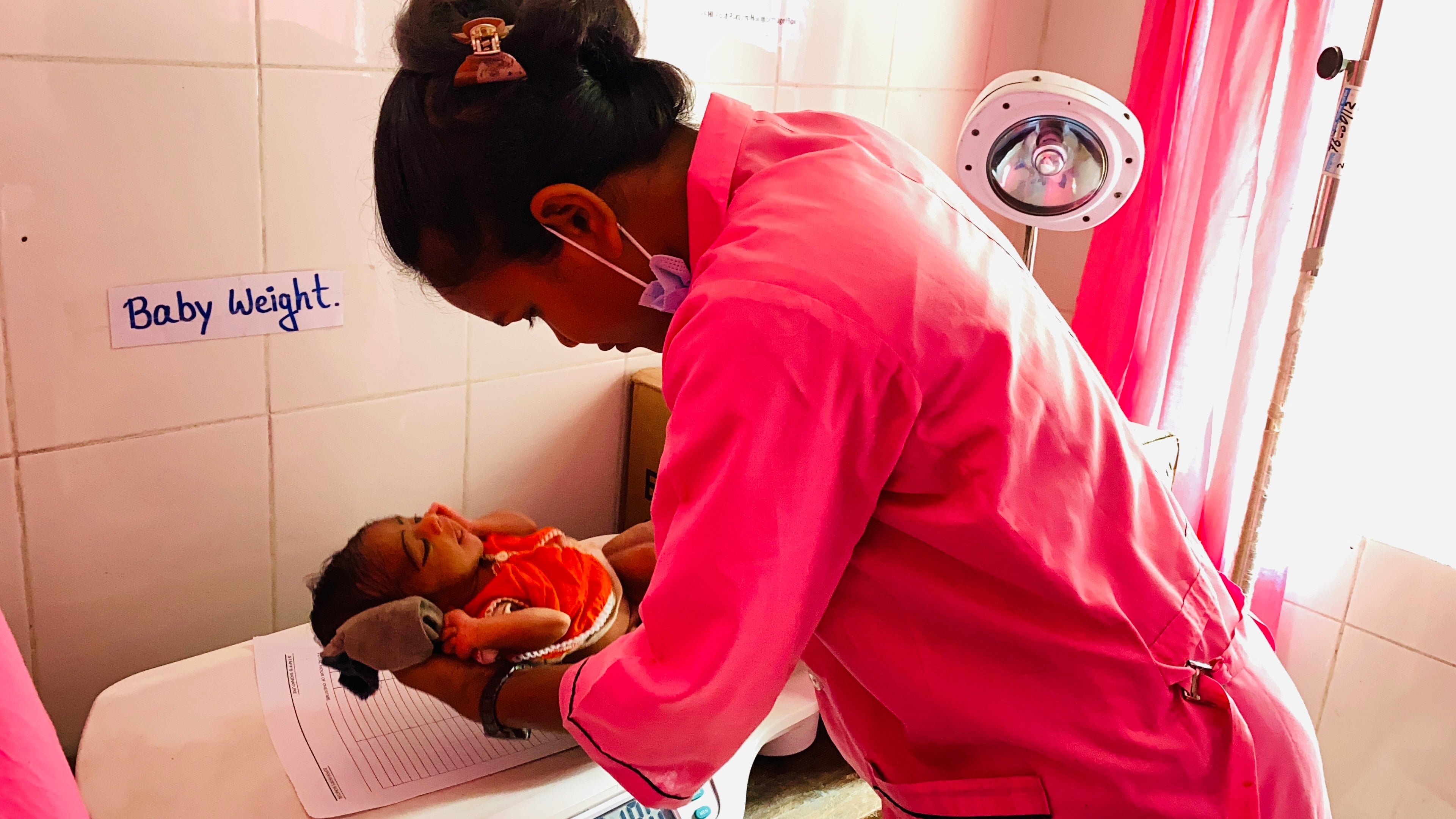
Like in other parts of Bangladesh, midwifery services remain a novelty to most women from the Santal community.
Despite the overall progress Bangladesh has made in reducing maternal mortalities, preventable maternal and newborn deaths remain prevalent among marginalized ethnic communities. As a result, the Ministry of Health and Family Welfare has taken special initiative to improve the quality and availability of maternal and other sexual and reproductive health services among marginalized communities.
One of the approaches taken has been to train midwives from different ethnic groups and deploying them to serve their communities. In 2017, four women from the Santal community were enrolled in a midwifery programme at the LAMB Nursing institute in Dinajpur District with support from UNFPA. Minoti was one of the lucky women to receive the scholarship for her midwifery studies.
“I first heard about this course from a relative. I decided to attend the admission test, because I knew this new profession would give me an opportunity to serve my community by preventing maternal deaths,” Minoti recalls.
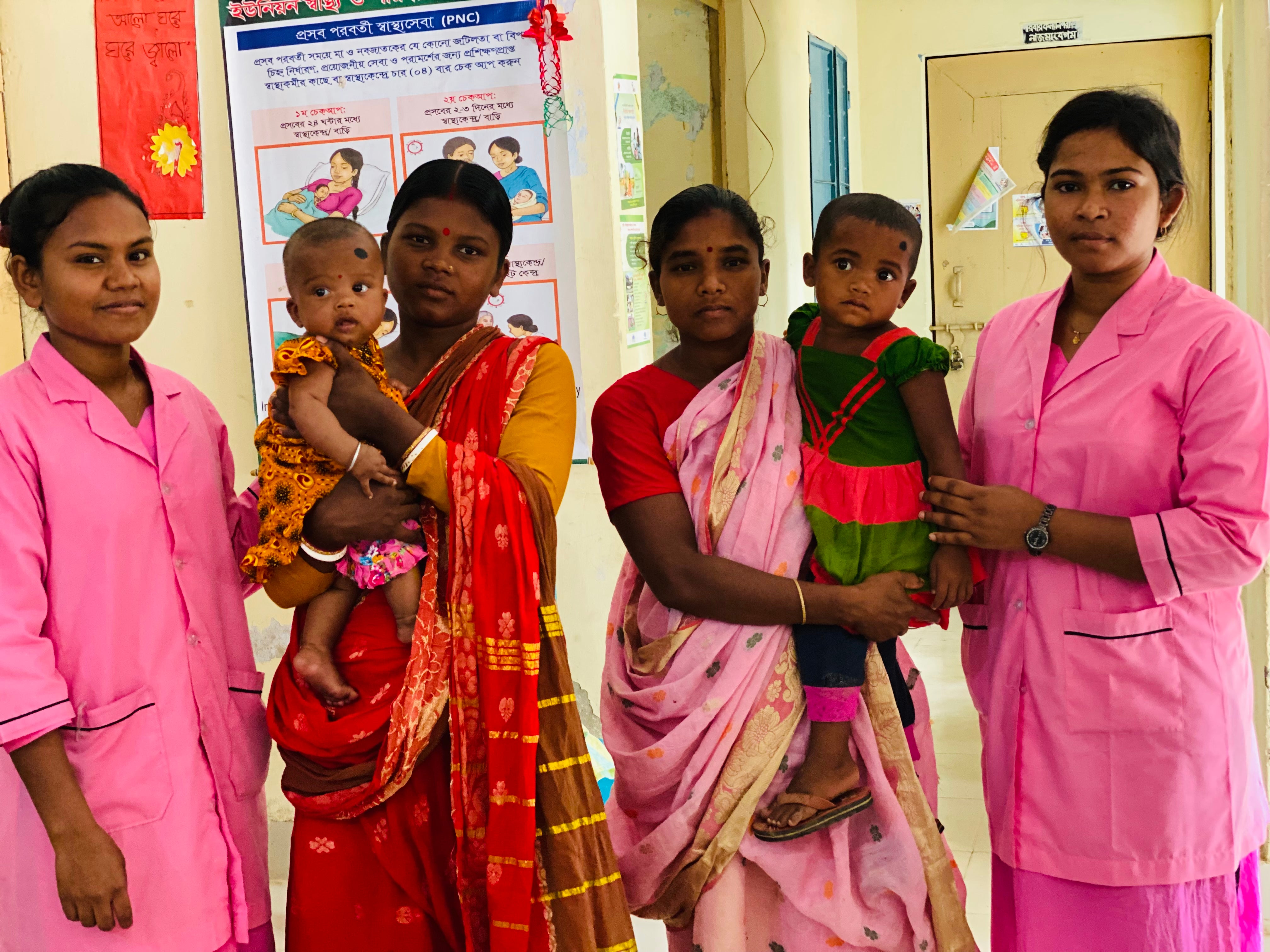
Having the opportunity to protect the lives of women from her community inspired Minoti (on the left) to become a midwife.
In three years, Minoti had completed her midwifery diploma. After graduating in 2019, she immediately applied for the licensing exam under the Bangladesh Nursing and Midwifery Council and succeeded in becoming a registered midwife. She then began performing her duties at the Sapmara Union Health and Family Welfare Center in Gobindaganj Upazila as part of a UNFPA-supported project designed to improve sexual and reproductive health services among the Santal community.
While serving as a midwife in her own community has been a dream come true for Minoti, the work is not always easy. “Many pregnant women from the Santal community continue to believe that they do not need to have medical check-ups during pregnancy. Due to poor awareness levels, there are also many harmful practices that remain common. For example, women often do not eat nutritious food during pregnancy, because they are afraid that the baby will grow too big for the delivery,” Minoti explains.
Despite these challenges, Minoti feels like she is in a privileged position to change mindsets in her community. “As I come to the community myself, I am able to form a special bond with the local women. It is easy for me to communicate with them since we share the same language. Because they relate to me, I am able to explain why constant care during the pregnancy, delivery and postpartum period is important and why certain practices should not continue,” Minoti says.
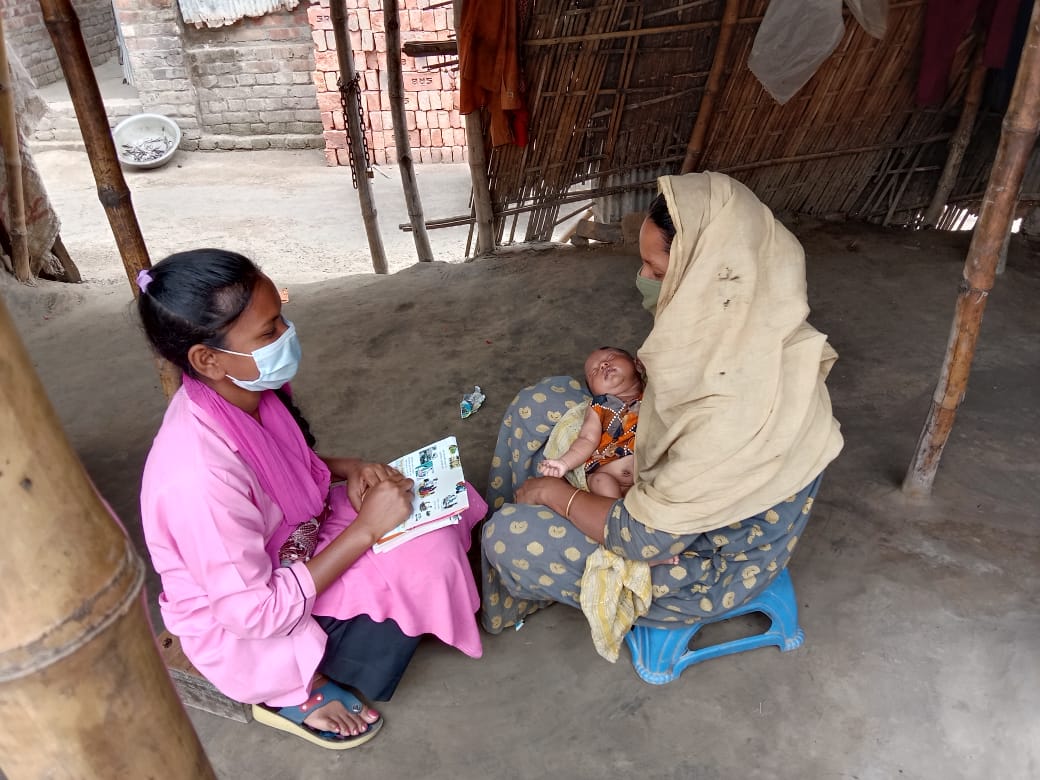
Sharing a common language helps Minoti to build a bond with women from the Santal community.
Since beginning her duties in 2020, she has rapidly seen how attitudes have began to shift among the community. “Every time a pregnant mother is satisfied with my service, I ask them to tell their friends and family to come to the health facility for their deliveries. The awareness levels are clearly increasing, as more and more women are coming to the health facility to not just perform their deliveries, but also for antenatal and postnatal care. All the services we provide are free, which also encourages them to come to the health facility,” Minoti explains.
Seeing the positive results her work has brought to her community gives Minoti the motivation to continue on the path she has chosen for herself: “I want to be a midwife for the rest of my life. I hope one day, I can further improve my skills by studying abroad. I want to do well and bring pride to the Santal community!”


